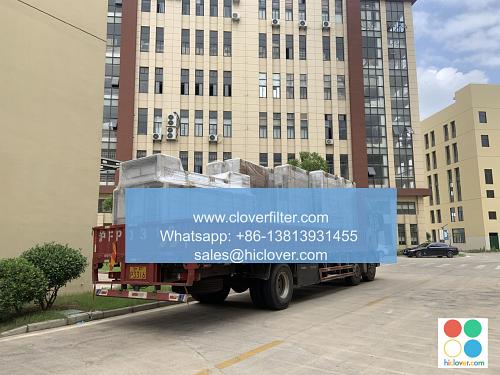Air Filter Applications in Industrial Settings: A Case Study

The use of air filters in industrial settings is crucial for maintaining a safe and healthy environment for workers, as well as for preventing damage to equipment and products. In this article, we will explore the various applications of air filters in industrial settings, highlighting their importance in air pollution control, industrial ventilation, and dust collection systems.
Introduction to Air Filtration Systems
Air filtration systems are designed to remove contaminants and particles from the air, improving the overall quality of the air in industrial settings. These systems use HEPA filters, activated carbon filters, and other types of filters to capture particles, gases, and vapors. The choice of filter depends on the specific application and the type of contaminants present in the air.
Applications of Air Filters in Industrial Settings
Air filters have a wide range of applications in industrial settings, including:
-
Air Pollution Control
: Air filters are used to control air pollution in industrial settings by removing particles and gases from the air. This is particularly important in industries that generate large amounts of dust, such as **cement manufacturing**, **mining**, and **construction**.
-
Industrial Ventilation
: Air filters are used in industrial ventilation systems to improve the quality of the air in the workplace. This is particularly important in industries that use **hazardous materials**, such as **chemical processing** and **pharmaceutical manufacturing**.
-
Dust Collection Systems
: Air filters are used in dust collection systems to remove dust and particles from the air. This is particularly important in industries that generate large amounts of dust, such as **woodworking** and **food processing**.
-
Improved Air Quality
: Air filters improve the quality of the air in industrial settings, reducing the risk of **respiratory problems** and other health issues.
-
Increased Equipment Life
: Air filters help to prevent damage to equipment and products, increasing their life and reducing the need for maintenance and repair.
-
Reduced Energy Costs
: Air filters can help to reduce energy costs by improving the efficiency of **heating, ventilation, and air conditioning (HVAC)** systems.
Case Study: Air Filter Applications in a Cement Manufacturing Plant
A cement manufacturing plant in the United States was experiencing problems with air pollution and dust generation. The plant was using baghouse filters to control air pollution, but these filters were not effective in removing all of the particles and gases from the air. The plant decided to install a new air filtration system that used HEPA filters and activated carbon filters. The new system was able to remove 99.97% of particles as small as 0.3 microns, improving the overall quality of the air in the plant.
Benefits of Air Filter Applications in Industrial Settings
The use of air filters in industrial settings has a number of benefits, including:
Conclusion
In conclusion, air filter applications in industrial settings are crucial for maintaining a safe and healthy environment for workers, as well as for preventing damage to equipment and products. By highlighting the importance of air pollution control, industrial ventilation, and dust collection systems, we can see the wide range of applications of air filters in industrial settings. The case study of the cement manufacturing plant demonstrates the effectiveness of air filters in improving air quality and reducing dust generation. By using the right type of air filter, industries can reduce the risk of respiratory problems, increase equipment life, and reduce energy costs.
It seems like you forgot to include the actual prompt. Please provide the question or topic you’d like to discuss, and I’ll do my best to assist you.

